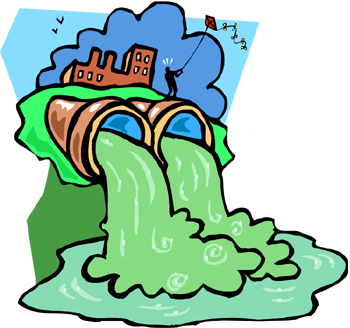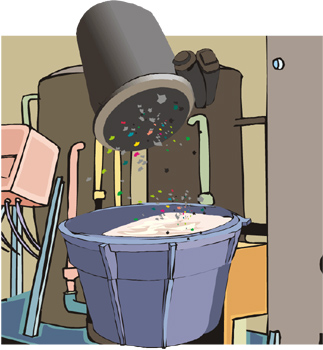Untitled Document
Education

Teaching
our kids about the importance of preserving the environment is the key
to preserving a pristine planet for future generations to enjoy.
Learning how to incorporate eco-friendly practices into every facet of
our lives at an early age will help shape young minds, create huge
potential for green technology and green jobs, and help to eventually
build solutions into many of the problems we now face. When considering a
school for you or your kids, or simply reviewing a school or university
you or your kids may attend now, be sure to consider the following
points.

|
Bike Program:
Biking is not only a more sustainable option as far as caring for the
environment is concerned. It is also a good way to exercise as opposed
to driving automobiles. It would be great to support schools that offer a
bike share program.
|
|

|
BYOBC Program:
Some school cafeterias now offer discounts to students who bring their
own beverage cups for coffee or cola. This is one of the best ways to
encourage students to use their own cups instead of using plastic or
Styrofoam ones.
|
|

|
Campus Recycling:
It would be great if the school you are considering openly encourages
recycling programs for students and teachers to follow. With proper
guidance and support, the school's effort will surely echo through
different parts of the community.
|
|

|
Career Paths:
Universities that offer majors in recycling, ecology or the environment
often offer career paths to support these majors. Expect some direction
in building a meaningful career around this advocacy.
|
|

|
Charging Stations:
A great way to envision a sustainable future is to imagine schools
offering solar charging stations for students and teachers to utilize.
Do no be afraid to contribute by learning more about energy crisis and
promoting sustainable alternatives.
|
|

|
Community Garden:
Having a thriving campus or community garden to supply the school's
cafeteria can be beneficial for many reasons. For one, it can be a
source of livelihood for local growers. Another is that they are grown
near the campus so that the products are guaranteed fresh. More
importantly, this will help minimize the purchase of commercial goods
that use chemicals for better harvest and profit.
|
|

|
Compost Practices:
You can do your share in separating cafeteria food so that vegetables
and fruits can be composted and used around the school flower beds or
gardens. If there are separate bins for biodegradable and
non-biodegradable waste, you can contribute by throwing your leftovers
in the proper trash can.
|
|

|
Earth Friendly Products: Using
green cleaning products instead of toxic chemicals around the school
premise is not only safe for the environment, but for the students as
well. Do not be afraid to inform school administrators about the
benefits of using non-chemical products in keeping the school clean.
|
|

|
Eco-Committment: If
the school you’re considering attending is truly serious about the
environment, you should be able to easily find anextensive environmental
policy listed on their website for everyone to easily find and view. If
not, don’t be afraid to ask,"why not?”. Your attendance at this campus
represents the potential for thousands of dollars to come into the local
community. Don’t be afraid to hold them to a higher standard and ask
them to earn your business.
|
|

|
Electric Vehicles:
In the near future, schools may make use of electric vehicles which are
recharged using solar power stations. Electric cars are known to have
smooth and strong acceleration. They were popular for some time until
cheaper gasoline vehicles became more accessible to the mass market in
the early 20th century. The good news is the benefits of electric
vehicles for a sustainable environment has encouraged its come back in
the recent years.
|
|

|
Environmental Activities:
Most private and public schools involve their students in different
types of recycling activities in and around the school. Should this
opportunity present itself, make sure you enjoy it and learn from the
experience. If this has not happened yet, do not be afraid to take the
initiative and suggest this campaign to your teachers. Something good
will surely come out of it.
|
|

|
Environmental Majors: Be
sure to search out the best institutions that provide environmental
education. These programs are almost mandatory in certain areas of the
world Life-long learning through academic awareness will eventually help
develop responsible citizens capable of applying their knowledge for
socio-cultural, economic, and ecological good.
|
|

|
Extensive Documentation: Institutions
that claim to care for the environment typically will sponsor or
conduct hundreds of activities taken on behalf of protecting the
environment. The school should have documentations and photos verifying
its historical record. Don't be bashful about openly inquiring about the
existence of these activities.
|
|

|
Extra Credit:
As a class project, look into performing environmental audits of local
businesses. When complete, present alternatives that will help them
reduce pollutants, save energy and consider switching to sustainable
resources whenever possible.
|
|

|
Filtered Air: An
excess heat recovery system removes polluted air from a room and
replaces it with clean filtered air. With the right size for the room,
your facility can provide fresh air without the need for other types of
ventilation that use a lot of energy.
|
|

|
Get Informed: Becoming
informed is the whole idea behind being going to school and getting a
first class education. Don't feel you have to take anyone's word at
face value. Keep yourself informed about where the recycled wastes are
heading to be sure they are not simply being dumped in the local
landfill in spite of your efforts.
|
|

|
Get Involved:
Schools, as an educational institution, educate students and perhaps
the community on how different waste products generated are properly
treated and recycled. Do not hesitate to learn more by being attentive
in class and by participating in activities that involve recycling and
proper waste management.
|
|

|
Green Power:
Schools are among the institutions that use a lot of energy. Check if
the school you are considering attending has a contract in place for a
minimum designated amount of green energy to power their campus.
|
|

|
Letter Writing:
You can also contribute by encouraging letter writing campaigns to
local politicians who are charged with enacting protective legislation.
|
|

|
Local Vendors:
Doing business locally helps the local economy and severely cuts down
on the amount of energy required to move products to market. Check to
see how judiciously your college stacks up in this very important area.
|
|

|
Mass Transit: Seek
out schools that offer mass transit or encourage car pooling for
students and teachers. The main goal is to save fuel usage while
promoting camaraderie among colleagues and classmates.
|
|

|
Natural Lighting:
One of the best ways to cut down energy use is to provide natural
lighting by taking advantage of the sun. Many schools are doing this by
designing buildings with architecture that allows more light inside the
establishment.
|
|

|
Purchasing Policy:
Schools that focus on the environment care about the long term benefits
for the children of the future. As a result, most of these schools
implement a policy of only doing business with entities whom exhibit the
bes
t of intentions toward the environment. Before you choose a school, ask for a copy of their purchasing policy.
|
|

|
Recycled Goods Policy:
Purchasing recycled or recyclable materials help minimize the amount of
waste dumped in landfills. On top of that, it helps generate income for
small local businesses that thrive on recycled products. Educational
institutions that support this effort care enough for the environment
that they create policies around this concept.
|
|

|
Recycle Funds:
One of the best ways to take part in the effort to save the environment
is by joining school organizations that aim for this purpose.
Collecting recyclable materials and selling some of the waste generated
to recycling centers is one of the ways to generate funds for the
organization.
|
|

|
Solar Power:
There are a couple of educational institutions that include roof solar
panels for power generation. Supporting your school's effort to use
alternative source of energy is a very good way of promoting a more
sustainable future.
|
|

|
Sorted Details:
Handling different types of wastes by sorting into specially marked
receptacles is a good indication that an institution takes it's social
responsibility seriously. Don't be afraid to ask to see what goes on
behind tall fences. Your good intentions will surely be acknowledged by
an administration staff that cares about the environment.
|
|

|
Technology:
If you are knowledgeable about computers or technology in general, you
can make a difference by monitoring or working with local polluters to
offer new technology and help them improve their environmental record.
|
|

|
Vegan Menus:
Part of the campaign to a healthier environment is to live a healthy
lifestyle as well. School cafeterias are now encouraged to offer vegan
and vegetarian menus to introduce students to organic food.
|
|

|
Waste Oil: Cooking
oils from the cafeteria can be converted into biodiesel. Do not
hesitate to inform the management or staff about how they can still
benefit from used oils.
|
|
Community Resources: